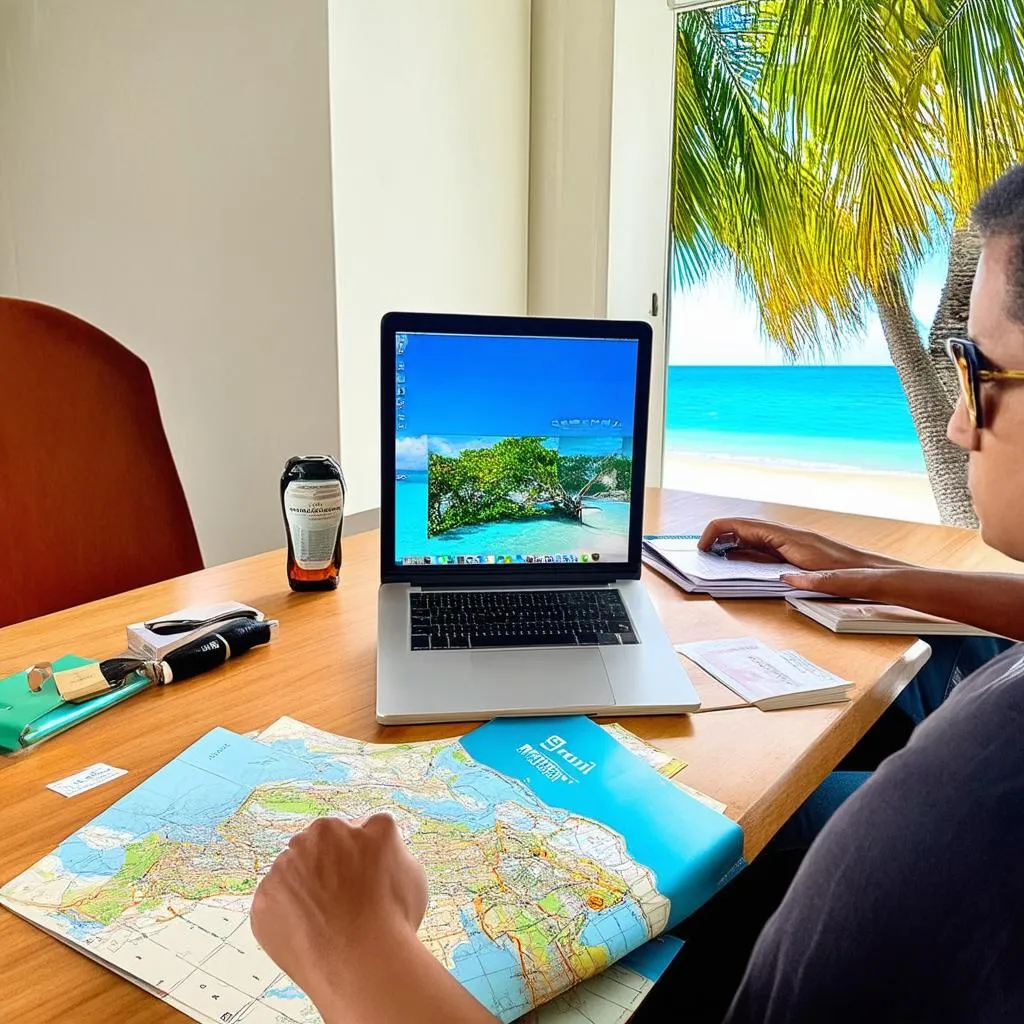Remember that time you planned an epic trip, flawlessly navigating flights, accommodations, and itineraries? Now, imagine getting paid for your expertise! Charging for travel planning might seem tricky, but it doesn’t have to be. This guide will delve into the art of setting travel fees, ensuring you’re fairly compensated for your time, knowledge, and effort.
Understanding the Value You Provide
Before slapping a price tag on your services, let’s recognize what you bring to the table. As a travel planner, you’re not just booking flights and hotels; you’re crafting dream vacations, considering every detail to create seamless and unforgettable experiences.
Think about it:
- Time Savings: You save clients countless hours of research, comparison, and booking. Remember Sarah, who spent weeks planning her European adventure? With your help, she could have enjoyed that time instead of battling confusing websites.
- Insider Knowledge: You’re a treasure trove of travel hacks, secret spots, and valuable tips, maximizing experiences and often saving clients money in the long run.
- Personalized Itineraries: You don’t offer generic packages; you craft bespoke journeys tailored to individual interests and budgets. Whether it’s a foodie tour of Vietnam or a historical exploration of Rome, you create unique experiences.
Factors Influencing Your Travel Fee
There’s no one-size-fits-all answer to “how much to charge.” Several factors come into play, and understanding these will help you determine a fair and competitive rate:
1. Complexity of the Itinerary
A weekend getaway to a local beach resort requires less planning than a multi-city backpacking adventure through Southeast Asia. The more intricate the itinerary (think visas, multiple destinations, specific activity bookings), the higher the fee.
2. Level of Service
Are you handling everything from flights and accommodation to restaurant reservations and activity bookings? Or are you providing a more streamlined service focusing on core travel elements? The more comprehensive your service, the more justifiable a higher fee.
3. Your Experience and Expertise
Just like any profession, experience counts. Seasoned travel planners with a proven track record and specialized knowledge can command higher rates than those new to the field.
4. Market Research
Don’t forget to check out the competition. Research what other travel planners in your niche and location are charging. This will give you a good benchmark for setting your rates.
Pricing Models: Finding Your Fit
There are several pricing models you can adopt. It’s about finding what aligns best with your business model and client preferences:
1. Hourly Rate
This model works well for consultations, itinerary tweaks, or specific tasks. It offers transparency to clients and ensures you’re compensated for your time.
2. Per-Trip Fee
This involves charging a flat fee for planning an entire trip. It’s straightforward and allows for clear budgeting from both sides.
3. Commission-Based
Some travel planners earn commissions from hotels, tour operators, or other travel providers. While this can be lucrative, it’s crucial to be transparent with clients about any potential commissions earned.
4. Package Deals
Consider offering tiered packages – basic, standard, and premium – each with varying levels of service and inclusions. This provides flexibility for clients with different budgets and needs.
Don’t Forget the Extras
When calculating your fees, factor in additional expenses:
- Communication costs: Phone calls, internet usage, and email subscriptions
- Marketing and advertising: Promoting your services to attract clients
- Professional development: Attending industry events, taking courses to stay updated
 A travel planner working on a laptop, surrounded by maps, guidebooks, and travel accessories
A travel planner working on a laptop, surrounded by maps, guidebooks, and travel accessories
FAQs: Addressing Common Concerns
Q: How do I convince potential clients that my services are worth the cost?
A: Highlight the value you bring – the time saved, stress reduced, and the potential for unique experiences and cost savings through your expertise. Showcase testimonials from satisfied clients and share examples of your meticulously crafted itineraries.
Q: What if a client tries to negotiate a lower price?
A: Be prepared to discuss your rates confidently. Outline the value you provide and be willing to compromise on certain aspects, like offering a slightly modified package or a payment plan.
Q: Should I offer discounts for repeat clients?
A: Rewarding loyalty is always a good idea. Consider offering discounts, added perks, or exclusive travel opportunities to returning clients.
Travelcar.edu.vn: Your Partner in Travel Planning
At Travelcar.edu.vn, we understand the intricacies of the travel industry. For more insights into travel costs and destination guides, explore our website. Planning a trip to Japan or Greece? Check out our comprehensive cost breakdowns: [link to: https://travelcar.edu.vn/how-much-does-it-cost-to-travel-to-japan/ ] and [link to: https://travelcar.edu.vn/how-much-does-it-cost-to-travel-to-greece/ ].
 A family enjoying their vacation on a beautiful beach with clear blue water and palm trees.
A family enjoying their vacation on a beautiful beach with clear blue water and palm trees.
Conclusion: Embark on Your Travel Planning Journey
Determining How Much To Charge For Travel Fees is a personal journey shaped by your skills, experience, and business goals. Remember, your pricing reflects the value you offer. By understanding your worth and effectively communicating it to clients, you’re not just planning trips; you’re building a successful and fulfilling career in the dynamic world of travel.